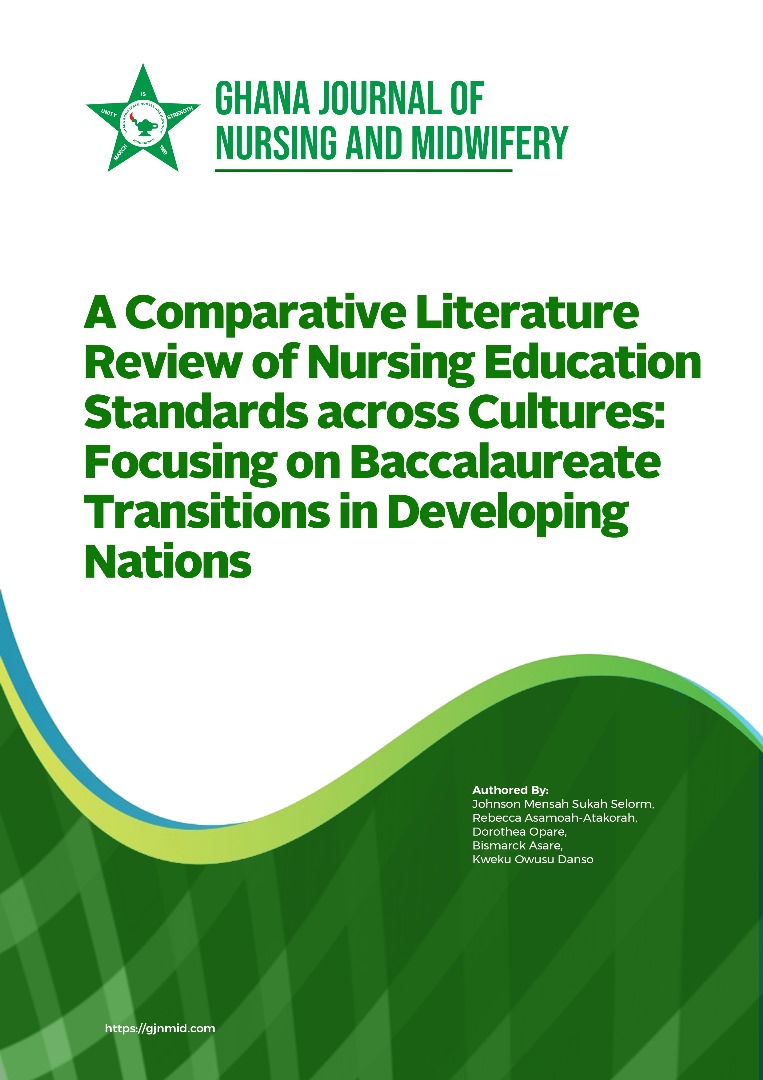A Comparative Literature Review of Nursing Education Standards across Cultures Focusing on Baccalaureate Transitions in Developing Nations
Main Article Content
Abstract
This study aimed to conduct a comparative analysis of nursing education standards across cultures, focusing on baccalaureate transitions in developing nations. A systematic literature review methodology was employed, analyzing 49 studies from databases including Google Scholar, PubMed, and ResearchGate. The analysis revealed common challenges across developing nations, including outdated curricula, inadequate clinical education, limited technology integration, and workforce retention issues. However, it also identified innovative approaches such as problem-based learning, simulation-based training, and global health integration. Findings highlight the need for context-specific educational strategies that align with global standards while addressing local healthcare needs. The study concludes that improving nursing education in developing nations requires multi-faceted approaches, including curriculum modernization, enhanced clinical training, technology integration, and stronger quality assurance mechanisms. Recommendations include investing in faculty development, strengthening regulatory frameworks, and fostering international collaborations. This analysis is significant in providing a comprehensive overview of nursing education challenges and potential solutions in developing nations, informing policy and educational reform efforts.
Downloads
Article Details

This work is licensed under a Creative Commons Attribution 4.0 International License.
Copyright (c) 2024
This work is licensed under a Creative Commons Attribution 4.0 International License.






